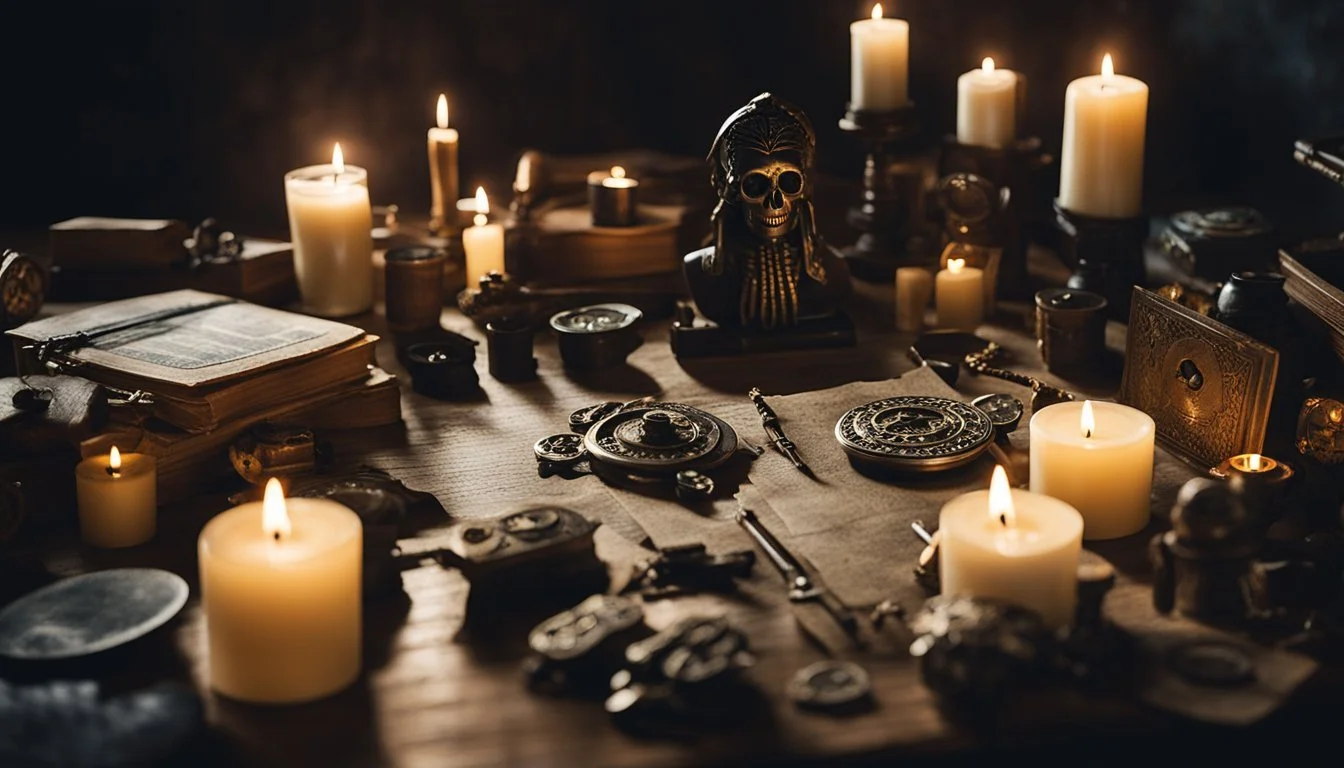7 True Crime Documentaries About Voodoo Practices
Uncovering Mysteries
True crime documentaries offer gripping insights into the dark and often misunderstood world of voodoo practices. These films delve into the intricate web of beliefs and rituals that are linked with a variety of unlawful activities and personal tragedies.
What draws audiences in is the real-life intersection of mysticism and crime, unveiling the secrets of voodoo traditions and their impact on communities. This article highlights seven such documentaries, each providing a unique look at how these ancient practices have been entwined with modern-day crimes, leaving viewers both intrigued and educated.
1) In Search of Voodoo: Roots to Heaven (2018)
Directed by Djimon Hounsou, it is a modern documentary that explores the origins of Vodun in West Africa, particularly in Benin, which is often considered the cradle of the tradition.
The film combines personal narrative with cultural exploration, showing ceremonies, initiations, and rituals while challenging common Western misconceptions about Voodoo. It presents Vodun as a living, vibrant spiritual tradition and emphasizes its deep historical roots and cultural significance.
For more information about this documentary, please visit IMDb.
2) Divine Horsemen: The Living Gods of Haiti (1985)
Based on footage filmed between 1947 and 1954 by Maya Deren, is one of the earliest and most respected ethnographic films on Haitian Vodou.
This black-and-white documentary captures authentic ceremonies, dances, trance states, and spirit possession, providing an immersive look at the religious and communal aspects of Vodou. Rather than sensationalizing the religion, it offers an observational, artistic portrayal of its rituals and rhythms, giving viewers a rare glimpse into mid-20th-century Haitian spiritual life.
For more information about this documentary, please visit IMDb.
3) Voodoo (1991)
Directed by Jacques Holender, was filmed in Haiti just before a political coup and offers raw footage of real ceremonies, possession rituals, and the social role of Vodou.
The documentary emphasizes how Vodou functions not only as a religion but also as a central part of Haitian cultural identity, showing its connections to history, politics, and daily life. It highlights the resilience of the tradition under social and economic hardships while presenting the religion respectfully and authentically.
4) Voodoo and the Church in Haiti (1989)
This documentary explores the complex relationship between Haitian Vodou and Christianity, particularly the Catholic Church. The documentary shows how Vodou has persisted and evolved despite centuries of opposition, illustrating its deep roots in Haitian communities, especially in rural areas.
Through interviews with priests and practitioners, and footage from temples and religious ceremonies, it portrays Vodou as a legitimate spiritual tradition that often coexists and interacts with Christian practices, creating a syncretic religious landscape.
For more information, please visit AlexanderStreetVideo.
5) Planet Doc - Voodoo Mysteries
The documentary explores the African roots of Voodoo and its evolution in Haiti, Cuba, and Brazil. It covers the Bois Caïman ceremony that sparked the Haitian Revolution, rituals in sacred natural sites, cemetery ceremonies honoring Baron Samedi, and the structure of Voodoo communities like the lakús.
The film also shows Afro-Cuban Palo Monte initiations and Brazilian Umbanda practices, highlighting trance, spirit possession, and the syncretism with Catholicism, revealing how these traditions remain deeply woven into daily life.
6) History's Mysteries: Voodoo Secrets (2005)
This is a TV documentary episode that traces the history of Voodoo from its African origins to its presence in Haiti and the Americas. It includes footage of West African ceremonies and explores how Voodoo has been perceived over time, particularly through sensational stories involving curses, zombies, and voodoo dolls.
While it offers historical context and some real footage, this documentary mixes folklore with fact and should be approached critically, as it emphasizes myths and popular misconceptions alongside real practices.
For more information about this documentary, please visit IMDb.
7) Voodoo (2013)
Understanding Voodoo
Voodoo, or Vodou, is a spiritual tradition with roots in West Africa that developed and transformed in the Americas, particularly in Haiti, Cuba, and Brazil. It blends African beliefs with Catholic symbolism, emphasizing a close relationship with nature, ancestors, and spirits. Central to Voodoo are ceremonies of possession, dance, music, and ritual offerings, which allow practitioners to communicate with lwa (spirits) or orixás.
Communities are often organized around temples or self-sufficient cells like lakús, led by priests (houngans) and priestesses (mambos). Contrary to popular myths, Voodoo is a living, complex religion with deep cultural, social, and spiritual significance.
Conclusion
These documentaries reveal the richness and diversity of Voodoo across regions and cultures, from Haitian Vodou to Cuban Santería and Brazilian Umbanda. They show how African spiritual practices survived the transatlantic slave trade, adapted to new environments, and continue to shape daily life, rituals, and community identity. By exploring ceremonies, trance, and sacred spaces, viewers gain a deeper understanding of Voodoo as a profound, living tradition rather than the sensationalized portrayals often seen in popular media.



